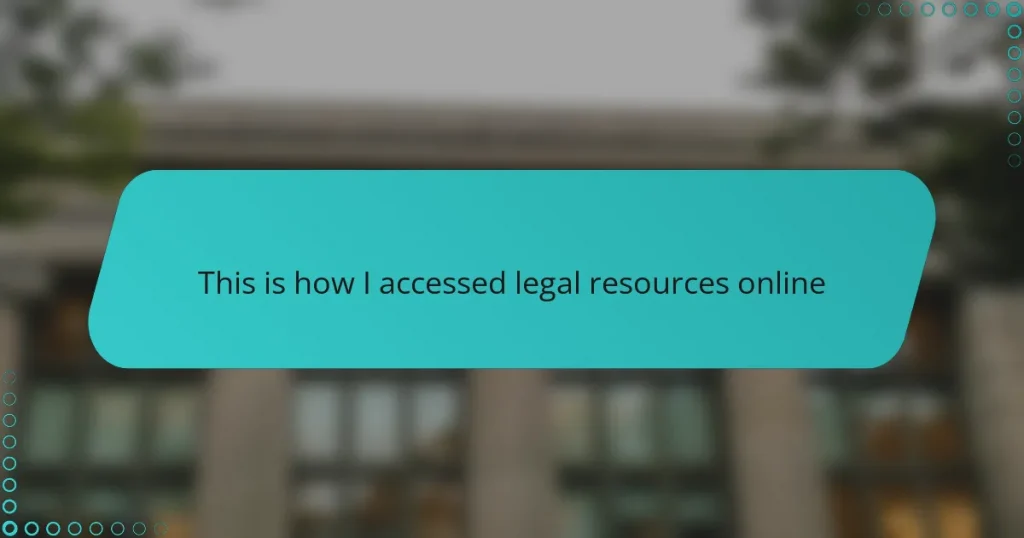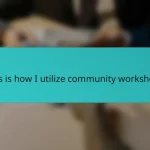Key takeaways
- Legal advocacy is about standing up for individuals’ rights and utilizing legal knowledge to navigate complex systems effectively.
- Access to trustworthy legal resources online, such as reputable websites and forums, can empower individuals to advocate for themselves.
- Defining specific legal questions and using targeted search terms enhances the effectiveness of online legal research.
- Combining formal legal databases with informal insights from blogs and forums provides a comprehensive understanding of the law.
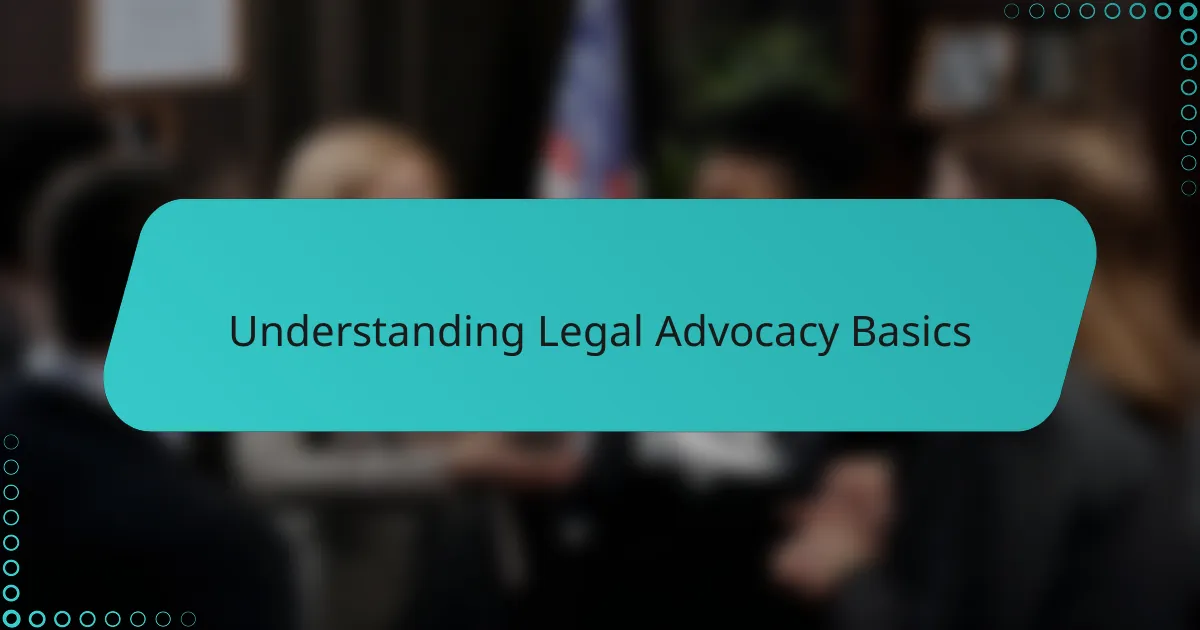
Understanding legal advocacy basics
Legal advocacy, to me, always felt like a distant, formal process until I started exploring it online. At its core, it’s about standing up for someone’s rights and ensuring their voice is heard, even when the odds seem stacked against them. Have you ever wondered what it truly means to be an advocate in the legal world?
When I first dipped my toes into legal advocacy, I realized it’s not just about knowing laws but about understanding people’s struggles and using knowledge to make a difference. It’s a blend of passion and practical support, often requiring patience and persistence to navigate complex systems.
What struck me most was how accessible legal advocacy can become with the right resources. It’s empowering to see how informed actions, guided by legal basics, can shift outcomes and offer hope where it felt impossible before. This realization changed how I approached legal challenges altogether.
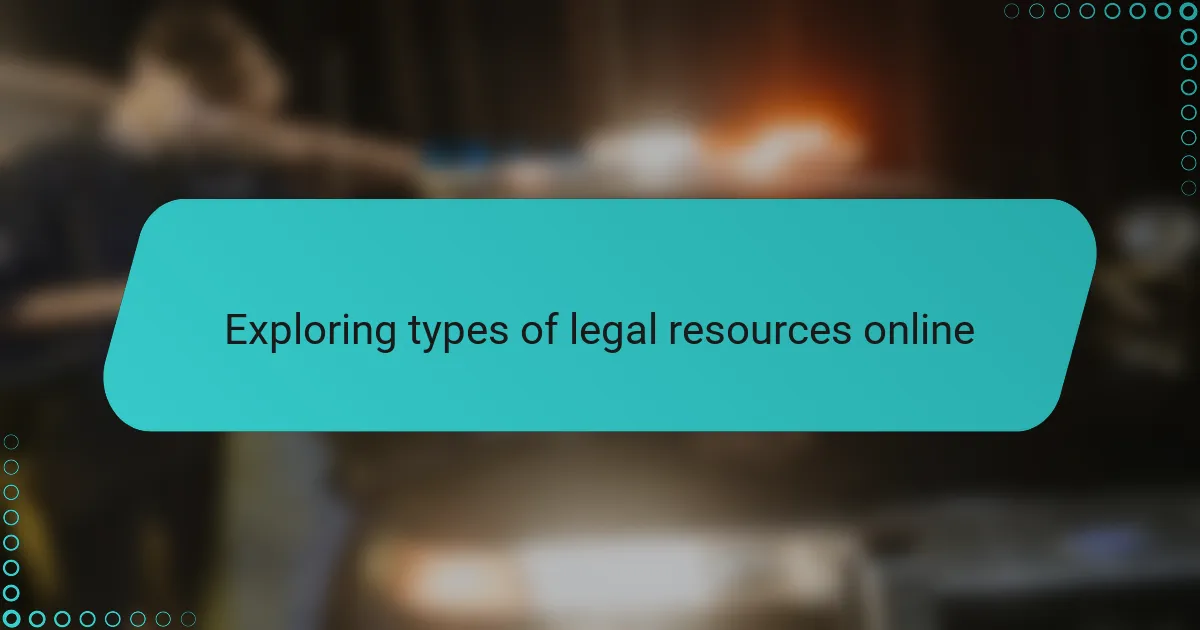
Exploring types of legal resources online
When I first started searching online, I was amazed by the variety of legal resources available. From free legal aid websites to comprehensive databases filled with case law and statutes, the options felt overwhelming but also incredibly empowering. Have you ever stumbled upon a site that not only answered your immediate questions but also opened doors to a deeper understanding of the law?
One thing I found particularly helpful were forums and blogs where legal professionals shared insights in everyday language. It made me realize that legal knowledge doesn’t have to be locked behind complicated jargon. This kind of accessibility turned what seemed like a scary maze into a navigable path.
Then, there are online legal document templates and self-help guides that felt like having a knowledgeable friend by my side. I remember drafting my first legal letter using one of these resources, feeling a mix of nervousness and confidence. It’s incredible how these tools can shift the power dynamic, giving people a chance to advocate for themselves effectively.
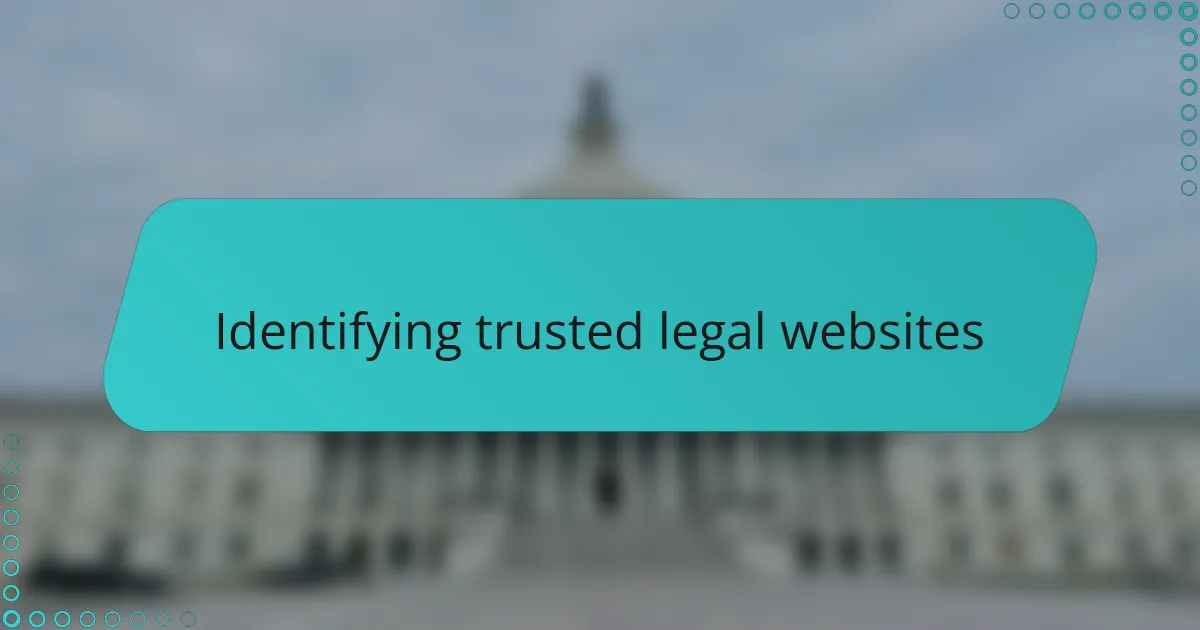
Identifying trusted legal websites
Knowing which legal websites to trust was a game-changer for me. I learned to look for sites affiliated with established organizations, like government agencies or recognized legal nonprofits. Their credibility gave me a sense of security amid all the information online.
I also paid close attention to how current the legal information was. Nothing felt more frustrating than finding advice that seemed outdated or irrelevant. Have you ever come across a site that quoted laws from decades ago? That’s when I knew to keep looking for sources that clearly showed recent updates.
One tip I found valuable was checking if the site had experts or licensed attorneys providing the content. Sometimes, it felt like chatting with a real person who knew their stuff, which made all the difference. It turns the overwhelming task of finding legal help into something much more manageable.
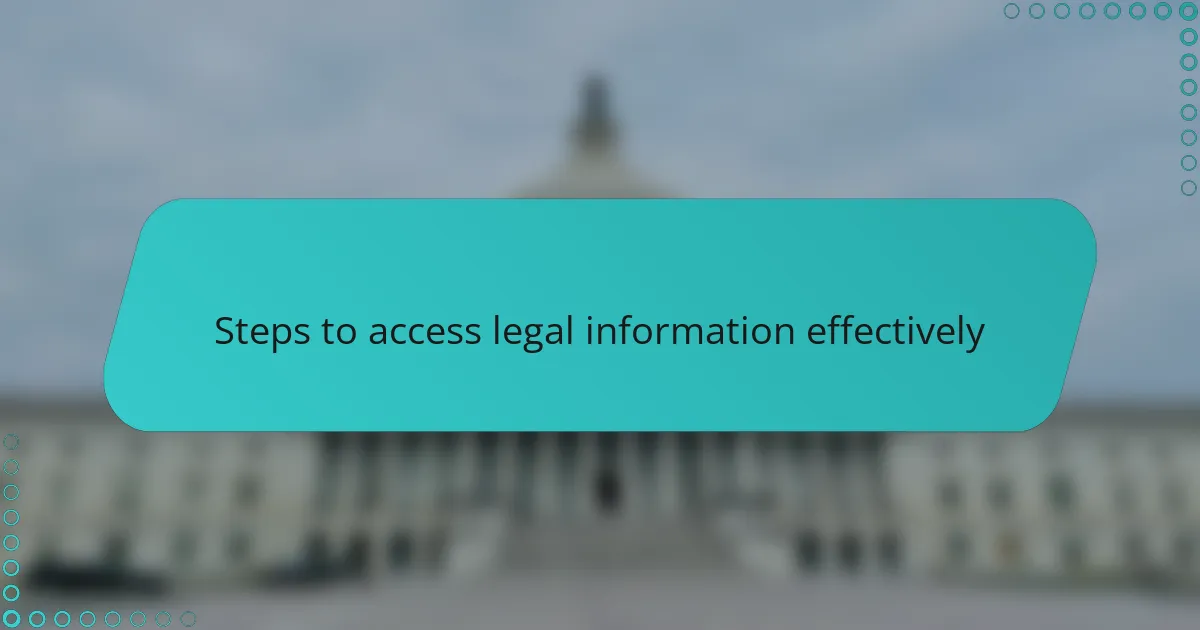
Steps to access legal information effectively
The first step I took was defining exactly what legal information I needed. It made a huge difference to start with a clear question rather than wandering aimlessly online. Have you ever tried searching without a specific goal only to feel more confused? Pinpointing the issue helped me focus on resources that actually mattered.
Next, I learned to use trusted search terms and filter results carefully. At first, I’d type broad phrases and end up buried in irrelevant sites, which was frustrating. Over time, I discovered that combining keywords like “free legal aid” with the exact area of law I was interested in gave me sharper, more useful results. It felt like tuning a dial to get clearer sound.
Finally, I always checked the date and authority behind the information before trusting it. One time, I almost relied on outdated advice that could have cost me dearly. Now, I make it a habit to look for recent updates and expert authors—this guardrail saves me from wasting time or making mistakes. Have you had moments where a simple detail made all the difference? That’s exactly why these steps matter.
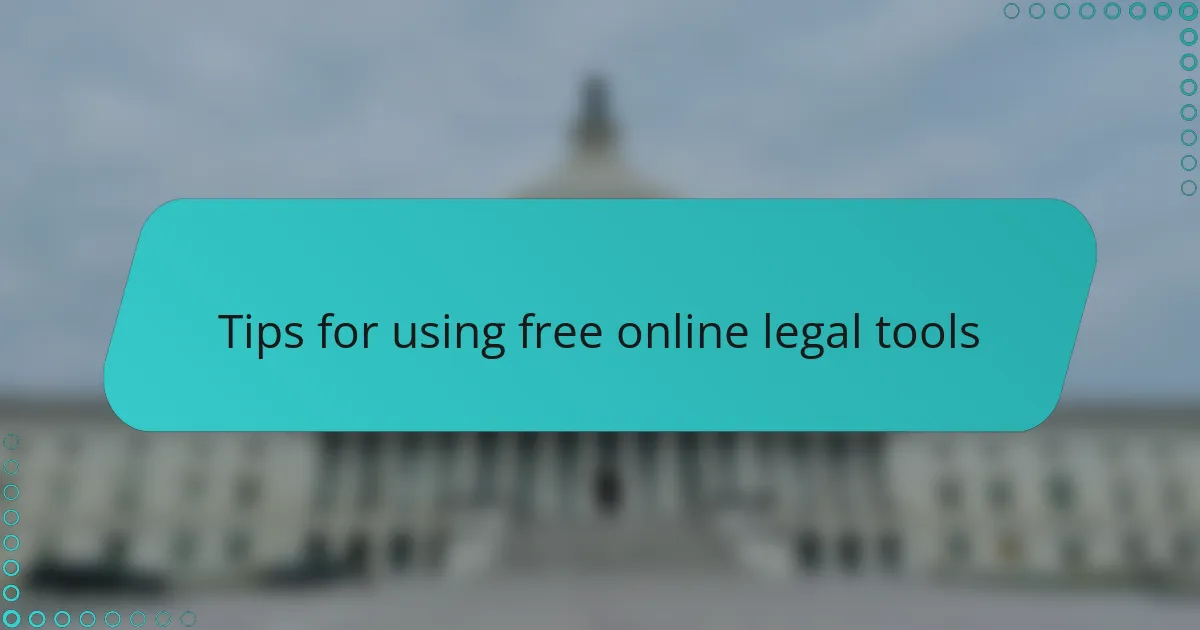
Tips for using free online legal tools
When I started using free legal tools online, I quickly realized that not all resources are created equal. It helped me to bookmark my favorite reliable sites so I didn’t have to waste time searching again. Have you ever lost an hour just trying to find a trustworthy guide? Having go-to resources made my process smoother and less stressful.
One trick I found useful was to read user comments or reviews when available. Sometimes, those little insights from others’ experiences told me whether a tool was user-friendly or just complicated legal jargon in disguise. It felt like getting advice from someone who had been through the same maze ahead of me.
Lastly, I learned to take notes while navigating these tools. I’d jot down key terms and steps so I could track my progress and avoid repeating mistakes. That simple habit built my confidence and made the legal world less intimidating. Have you noticed how writing things down often clears up confusion? For me, it was a small step with a big impact.
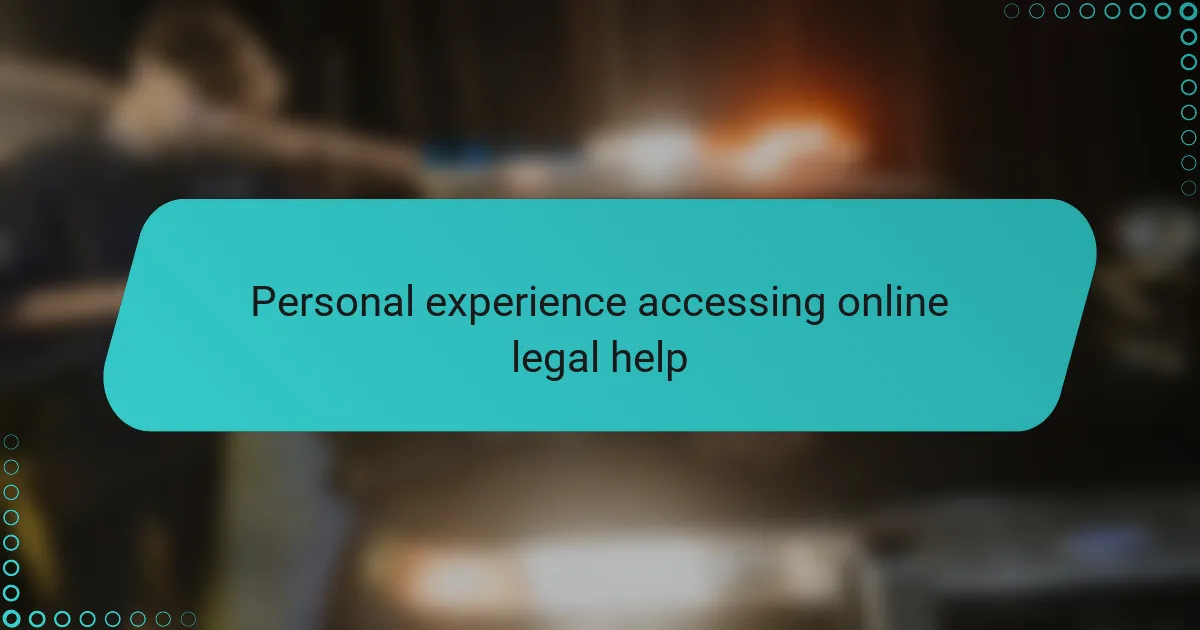
Personal experience accessing online legal help
Navigating online legal help for the first time felt both exciting and daunting to me. I remember hesitating before clicking links, wondering if the information would actually apply to my situation or just add to the confusion. Have you ever felt that mix of hope and uncertainty when searching for something as important as legal advice online? That moment stuck with me because it taught me how crucial it is to find trustworthy guidance amid the noise.
One experience that stands out was when I found a live chat feature on a nonprofit legal site. Being able to type out my questions and get clear, patient responses from a real person was a game changer. It eased my anxiety and made the legal process feel less like an intimidating black box. I realized then how much a simple connection can empower someone facing legal challenges alone.
But not everything was smooth sailing. I once relied on a general legal forum that wasn’t moderated by professionals, and it led me down the wrong path for a few days. That frustration made me more cautious and taught me the importance of verifying who’s behind the advice. Do you think we sometimes overlook the value of expert-backed information until we’ve learned it the hard way? For me, this experience became a valuable lesson in being both hopeful and critical when accessing legal resources online.
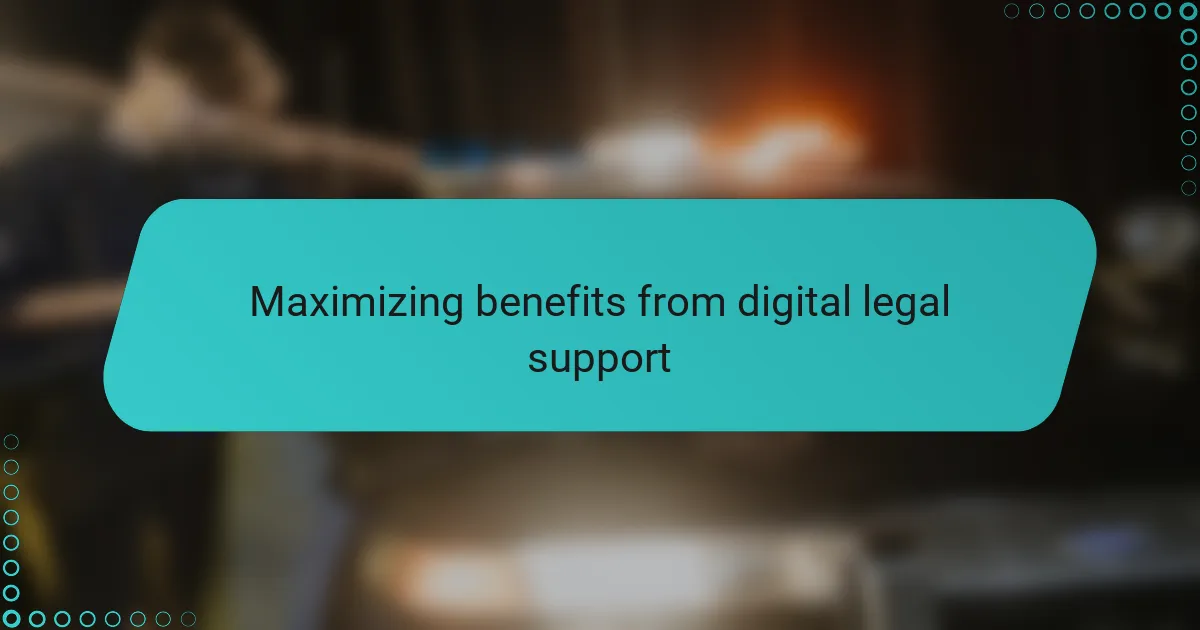
Maximizing benefits from digital legal support
One thing I found essential in maximizing benefits from digital legal support was learning to combine different types of resources. For example, while legal databases offered me the official details I needed, blogs and forums gave me real-world perspectives that made complex laws easier to understand. Isn’t it interesting how blending formal and informal sources can create a more complete picture?
Another key step was setting realistic expectations about what online tools could do. I discovered that digital legal support often serves best as a first stop—not a complete solution. When I was clear about this, I avoided frustration and used the resources to prepare better questions for my consultations or to draft initial documents confidently.
I also made it a habit to revisit resources periodically. Laws change, and so do support platforms. By checking back, I stayed updated without feeling overwhelmed. Have you ever returned to a site you thought you knew, only to find fresh insights or new tools? That ongoing engagement made all the difference between passive browsing and truly benefiting from digital legal support.
